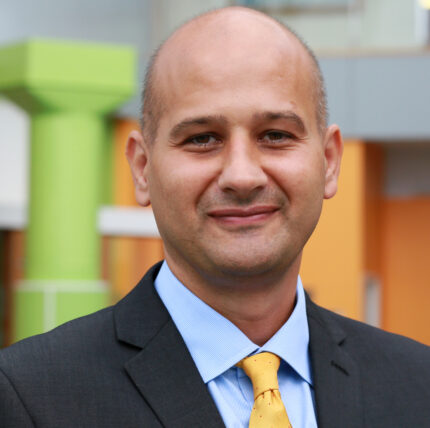If we’re not careful, students from the most disadvantaged communities could well be quietly deterred from even considering the option of a university education.
The costs of energy, food, clothes, travel, are all going to have to be factored into calculations about affordability.
And whether students are living at home or in student accommodation, the simple and relentless logic of the market, who can afford what, will take over.
This is the right time
It’s happening at the “right” time for the government. Record numbers of UK students, around half a million, have accepted places at universities. Numbers of applications for undergrad and postgrad courses are now expected to hit one million by 2026, says UCAS.
Delivering a more inclusive sector comes with a significant financial cost for government and taxpayers, especially when it’s accompanied by a decade-long bulge of 18-year-olds in the population.
Cynically-speaking, it looks like there will be no need to think about the mechanics of capping student numbers – new levels for cost of living crisis would force would-be students into getting a job instead of up-skilling.
As flagged by a report from the Institute for Fiscal Studies this month, cost pressures were already being exerted discreetly through cuts and tax rises – for example, by continuing to freeze the parental earning threshold for maintenance grants at £25,000.
The biggest impact will be on the less wealthy and the “levelling up” agenda, meaning backward steps when it comes to diversity and inclusion and in the efforts to increase upskilling and open up new supplies of skills to the UK economy.
A significant proportion of the higher education places being taken up involved new waves of people from disadvantaged groups – 21 percent of pupils who had been eligible for free school meals secured a university place this year.
To the surface
This all has to be out in the open. There should be a public debate over what’s happening and what the UK really wants from its university system and what it’s willing to pay for – what the role of universities actually are when it comes to delivering on the principles of diversity, equality and inclusion.
It’ll take action ahead of the next cycle of admissions to ensure the opportunity is still available to everyone purely on the basis of ability. Otherwise the danger is that the coming years will see higher education returning to its role as a great social divider.
Faced with the everyday practicality of paying bills, more people will just be forced to take an immediate job to make ends meet — to get by themselves or contribute towards meeting family bills. Inevitably that will mean accepting the lower skill job options and giving up on ambitions for higher skilled careers.
In turn that has real implications for the UK economy, and in spite of all of its urgent needs for upskilling, for more digital tech specialists, for engineers, healthcare, and management professionals. Essentially, we could see capacity and talent sucked out of the system or rather, never entering the system that represents so much missed potential.
The pound in your pocket
We need a new White Paper on how higher education can continue to be a levelling up platform and how that can work- one that looks at increasing the value of student finance available for living costs so that students can fully engage in the ethos, excitement and development of going to university, whilst also developing as a person.
Meanwhile universities themselves should be thinking about the scale of their hardship provision, how those funds can get to the people who need them most, and other, more creative ways to access funding during their studies.
In the private higher education sector, the University of Buckingham is working with a fintech company to offer “risk-sharing” financing for students based on specific calculations of career potential – upfront cash in recognition of long-term financial contribution as a result of higher education.
Clearly, such schemes favour certain career choices, so any rethink needs to ensure we allow for the breadth of course options, where the entirety of social, economic and cultural value added is considered from a university experience.
In a city like Bradford we have a young, diverse population with a great deal of energy when it comes to new enterprise. By focusing on employability, like Bradford, more universities have been able to play an active part in raising aspirations and upskilling, in creating new mobility across society. We can’t now let inflation derail that progress.












